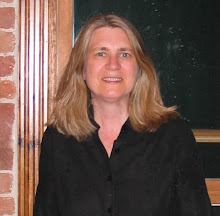
The eye with which I see God is the same eye with which God sees me. Meister Eckhart
On March 27, 1329, Pope John XXII accused Johannes Eckhart of heresy and condemned him to death. Why was Meister Eckhart condemned as a heretic? He dared to make the startling declaration that God and human beings are already bonded together, already in intimate contact. The only obstacle is our consciousness and the construction of dualism that constricts our ongoing divinization. His experience led him to believe that in the secret recess of the soul is the spark of the divine, which is participating in the timeless existence of God. This mystical understanding got him in trouble with the Catholic church and condemned to die as a heretic.
The "myticism" of Meister Eckhart:
To be full of things is to be empty of the divine. To be empty of things is to be full of the divine.
God is a great underground river that no one can dam up and no one can stop.
God is creating the entire universe, fully and totally, in the present now.
There exists only the present instant... a Now which always and without end is itself new. There is no yesterday nor any tomorrow, but only Now, as it was a thousand years ago and as it will be a thousand years hence.
On this anniversary of his death, his cogent and soul-stretching words, are invigorating. They nourish me and challenge me to step into the spiritual adventure in which he lived.



 One night four Rabbinim were visited by an angel who awakened them and carried them to the Seventh Vault of the Seventh Heaven. There they beheld the sacred Wheel of Ezekiel. Somewhere in the decent from Paradise to Earth, one Rabbi, having seen such splendor, lost his mind and wandered frothing and foaming until the end of his days. The second Rabbi was extremely cynical: "Oh I just dreamed Ezekiel's Wheel, that was all. Nothing really happened." The third Rabbi carried on and on about about what he had seen, for he was totally obsessed. He lectured and would not stop with how it was all constructed and what it all meant... and in this way he went astray and betrayed his faith. The fourth Rabbi, who was a poet, took a paper in hand and a reed and sat near the window writing song after song praising the evening dove, his daughter in her cradle, and all the stars in the sky. And he lived his life better than before.
One night four Rabbinim were visited by an angel who awakened them and carried them to the Seventh Vault of the Seventh Heaven. There they beheld the sacred Wheel of Ezekiel. Somewhere in the decent from Paradise to Earth, one Rabbi, having seen such splendor, lost his mind and wandered frothing and foaming until the end of his days. The second Rabbi was extremely cynical: "Oh I just dreamed Ezekiel's Wheel, that was all. Nothing really happened." The third Rabbi carried on and on about about what he had seen, for he was totally obsessed. He lectured and would not stop with how it was all constructed and what it all meant... and in this way he went astray and betrayed his faith. The fourth Rabbi, who was a poet, took a paper in hand and a reed and sat near the window writing song after song praising the evening dove, his daughter in her cradle, and all the stars in the sky. And he lived his life better than before.


